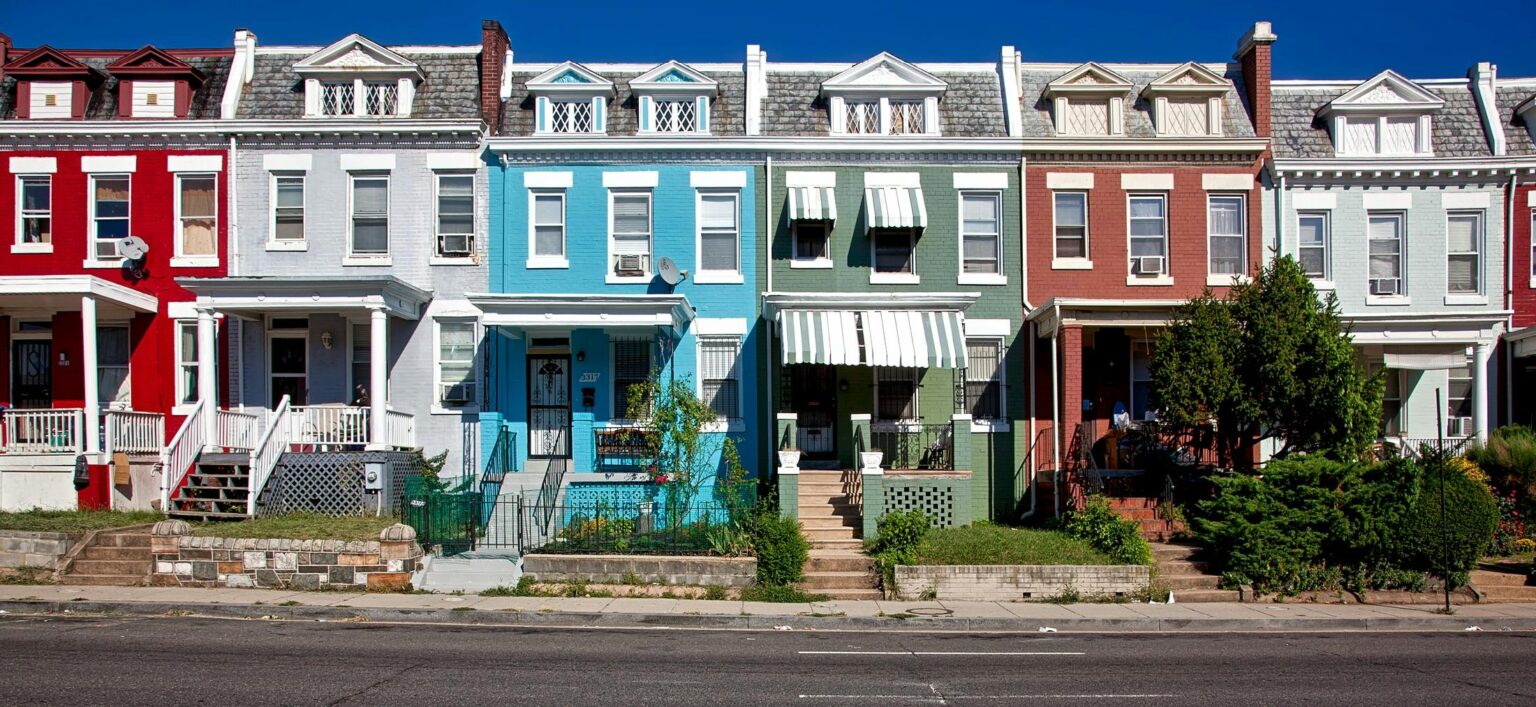We commonly discuss how short-term rental managers should prioritize guest and homeowner concerns, but it’s just as important for Airbnb hosts to also consider how to address neighbor complaints.
Understanding the root causes of complaints and implementing proactive measures can help maintain positive relationships, garner neighborhood support, and ensure the long-term success of your vacation rental business.
In this article we’ll explore common vacation rental neighbor complaints, strategies for prevention, and how to respond professionally when issues arise. We’ve even included a template to help if unhappy neighbors come knocking.
Common Airbnb neighbor complaints
But just what are the most common neighbor complaints Airbnb hosts receive? Let’s review.
Noise complaints
Noise is one of the most frequent and challenging complaints related to short-term rentals. Unlike traditional long-term tenants, short-term Airbnb guests are often on vacation and may not be as mindful of their noise levels. Parties, late-night conversations and check-ins, loud music, and even the movement of luggage can create disturbances that disrupt the peace of the neighborhood.
As a rental manager, it’s essential to understand that what may seem like a normal level to a guest could be perceived as excessive noise by neighbors, especially in quiet residential neighborhoods.
Parking space issues
Parking is a significant concern, particularly in urban areas or neighborhoods with limited spaces. Airbnb guests who are unfamiliar with the area may inadvertently park in spots reserved for neighbors, block driveways, or misuse shared spaces. These parking conflicts can quickly lead to tension and complaints. Moreover, repeated parking issues can damage relationships with neighbors and may even result in fines or legal action from local authorities if regulations are violated.
Short-term renter safety concerns
Safety is a top priority for any community, and the presence of short-term renters and frequent turnover can sometimes make neighbors feel uneasy about potential risks (like unauthorized parties, vandalism, or other criminal activities). Addressing these concerns head-on is crucial for maintaining trust and ensuring the safety of both your guests and the community.
Vacation rental disruption to the community
One of the more subtle yet significant complaints from neighbors (as well as HOA boards!) is the perceived disruption of the community atmosphere. Long-term residents often value the stability and familiarity of their neighborhood. The transient nature of short-term rentals can introduce an element of unpredictability that disrupts this sense of community.
When communicating your house rules to your Airbnb guests, appeal to their notion of what they would seek in a “good neighbor” and kindly suggest they do the same to keep a respectful community environment.
Proactive measures to prevent neighbor complaints
It may be common sense to get ahead of neighbor complaints before they happen, but exactly how to do that isn’t always obvious. Here are some key ways to mitigate potential disputes.
Establishing clear house rules
As a short-term rental manager, the most critical and effective way to prevent complaints is by establishing clear and comprehensive house rules from the get-go. These rules should cover essential topics such as noise levels, parking, guest conduct, and the use of shared spaces. Make sure that guests are aware of these rules before they book and remind them upon check-in.
Displaying the house rules prominently within the property can also serve as a helpful reminder. By setting expectations early, you reduce the likelihood of guests inadvertently causing disruptions that could lead to neighbor complaints.

Airbnb guest screening and selection
Not all guests are a good fit for every short-term rental property. Implementing a thorough guest screening process can help you select renters who are more likely to respect the property and the surrounding community. Use Airbnb’s host tools, such as guest reviews and verification processes, to assess potential guests before confirming their bookings.
Additionally, consider communicating directly with Airbnb guests before confirming a booking to gauge their suitability and confirm number of guests. For properties in sensitive or quiet neighborhoods, prioritize guests who have positive reviews and demonstrate a clear understanding of your house rules and community expectations.

Install noise monitoring devices
Noise monitoring devices are a valuable tool for rental managers, allowing you to monitor sound levels in real-time without invading guests’ privacy. These devices can send alerts when noise exceeds a certain threshold, giving managers the opportunity to address the issue before it escalates into a complaint.
If using noise monitor software like Noiseaware, make sure to inform guests that these devices are in place as part of your commitment to maintaining a peaceful environment. This proactive approach can prevent noise-related disputes and demonstrate to neighbors that you take their concerns seriously.
Provide clear parking info
To prevent parking issues, it’s critical to be absolutely clear with your Airbnb guests both before check-in and during their stays. This information should include if they’re entitled to an on-site parking space, where they can park, areas to avoid, and any relevant local regulations and even hefty fines they might incur.
If your property has limited parking spaces, consider offering alternative options, such as nearby public parking lots or garages. You may also want to include visual aids, like maps or photos, to help guests easily locate designated parking areas. By ensuring that guests are well-informed, you can minimize the risk of parking conflicts with neighbors.
Educating Airbnb guests on community norms
Every community has its own unique culture and expectations. As a short-term rental manager, it’s important to educate your guests about the specific norms and customs of the neighborhood they are staying in, especially in quieter residential areas. This could include information about quiet hours, waste disposal practices, and any other local customs that guests should be aware of.
How to respond to a neighbor complaint
So what should a property manager do when a neighbor complaint comes in? Let’s explore.
Acknowledge the complaint promptly
Just as everything else that comes with being a successful vacation rental manager, promptness is essential. As soon as a neighbor brings a complaint to your attention, it’s crucial to acknowledge it immediately, even if you cannot provide an immediate solution. Letting the neighbor know that you’re aware of the problem and are working on it can help diffuse tension and prevent further escalation like law enforcement involvement.
Address the issue with your Airbnb guest
Once you’ve communicated with the neighbor, address the issue directly with your Airbnb guest. Approach the conversation professionally and politely, reminding them of the house rules and the importance of respecting the neighbors.
If the issue is severe or the guest is uncooperative, you may need to take further action as a last resort, such as asking the guest to leave. Always document these interactions to protect you and your property management business in case of future disputes.
Document the neighbor complaint
Keeping detailed records of any neighbor complaints and the actions you took to resolve them is essential for managing your Airbnb effectively. Documentation can be invaluable if a complaint escalates or if legal issues arise.
Include information such as the date and time of the complaint, the nature of the issue, how it was addressed, and any communication with the guest and concerned neighbor. This record will help you track recurring issues and demonstrate your proactive approach to resolving problems.
Implement additional preventive measures
After resolving a neighbor’s complaint, evaluate whether additional measures are needed to prevent similar issues in the future. This could involve updating house rules, installing new equipment like security cameras, or making property modifications to minimize disruptions. By continuously improving your processes, you can reduce the likelihood of future complaints and enhance the overall experience for both your guests and neighbors.
Open communication is key to maintaining good relationships with neighbors. Acknowledge the neighbor’s complaint, take the time to discuss the issue with the neighbor, apologize for any inconvenience, and explain the steps you plan to take to address the situation. As a professional property manager, showing that you are willing to engage and find a solution can build trust and demonstrate your commitment to being a responsible Airbnb host.
Click to download (It’s free!)
Neighbor Complaint Response Template for Airbnb Hosts
If you’re at a loss as to how to manage a neighbor’s concerns effectively, download our template to get started.
Short-term rental legal and regulatory considerations
Understanding local STR laws
Navigating local short-term rental regulations is a critical aspect of managing your Airbnb rentals. Laws governing short-term rentals vary widely depending on location and can include restrictions on the number of days a property can be rented, occupancy limits, and licensing requirements.
Ensure you are fully aware of the STR regulations in your area and remain compliant to avoid fines, penalties, or potential legal action. Keeping abreast of any changes in the law is also important, as local governments often update regulations in response to community concerns.
Navigating noise ordinances
Local noise ordinances often dictate acceptable noise levels, particularly during certain hours of the day. Understanding these ordinances will help you set appropriate noise limits for your guests and take timely action if complaints arise. Educate your guests on these rules and incorporate them into your house rules. Compliance with local noise ordinances is essential for avoiding fines and maintaining good relationships with neighbors.
Potential STR fines and penalties
Violating local short-term rental laws or failing to address neighbor complaints can result in hefty fines and other penalties. These can include monetary fines, suspension of your vacation rental business, or even legal action. Remember: it’s your responsibility to ensure that your Airbnb operations comply with all local regulations and that you address any issues swiftly to avoid escalating conflicts.
Conclusion
Investing in positive relationships with neighbors can significantly reduce the likelihood of complaints. Take the time to introduce yourself, explain your role as a rental manager, and share your contact information in case any issues arise.
By taking these steps, you can manage your Airbnb bookings responsibly, address complaints effectively, and create a harmonious experience for both your guests and your neighbors.









